In comparing Dapper with the Enterprise Library Data Access Access block for getting data via stored procedure. I see an overall performance benefit of about 40% when using Dapper, which is somewhat surprising.
However, when comparing iteration and getting data from an IEnumerable(IDataRecord) vs. IEnumerable(dynamic), IEnumerable(IDataRecord) is approximately an order of magnitude faster. Is this behavior well understood and to be expected or is there something not right here?
The results:
IEnumerable(IDataRecord)

IEnumerable(dynamic) - using dapperObject.propertyName

Now the interesting part, when using dapperObject["propertyName"], the performance is on par with IDataRecord. Not at all what I would have expected.

The relevant portion of the profiling code
using System;
using System.Collections.Generic;
using System.Linq;
using Dapper.DataAccess;
using System.Data;
using tophat;
namespace Dapper.TestRunner
{
class Program
{
static void Main(string[] args)
{
var connectionString = "data source=WEBDBdev3,1866; User id=hsbmhw;Password=gEner4Y&M;Persist Security Info='true'; initial catalog=myhomeworks;";
//The following uses Tophat to create a singleton connection instance.
Database.Install<SqlServerConnectionFactory>(connectionString, ConnectionScope.ByRequest);
DapperTest();
DapperTest2();
EnterpriseLibraryIDataRecordTest();
}
private static void DapperTest()
{
for (int i = 0; i < 100; i++)
{
IEnumerable<dynamic> users = MyRepository.GetUsersDapper();
PopulateBusinessObjectsDynamic(users);
}
}
private static void DapperTest2()
{
for (int i = 0; i < 100; i++)
{
IEnumerable<dynamic> users = MyRepository.GetUsersDapper();
PopulateBusinessObjectsDynamic2(users);
}
}
private static void EnterpriseLibraryIDataRecordTest()
{
for (int i = 0; i < 100; i++)
{
IEnumerable<IDataRecord> users = MyRepository.GetUsersEntlib();
PopulateBusinessObjectsIDataRecord(users);
}
}
private static void PopulateBusinessObjectsDynamic(IEnumerable<dynamic> users)
{
foreach (var user in users)
{
BusinessObject bo = new BusinessObject(user);
}
}
private static void PopulateBusinessObjectsDynamic2(IEnumerable<dynamic> users)
{
foreach (var user in users)
{
BusinessObject bo = new BusinessObject(user);
}
}
private static void PopulateBusinessObjectsIDataRecord(IEnumerable<IDataRecord> users)
{
foreach (var user in users)
{
BusinessObject bo = new BusinessObject(user);
}
}
}
public class BusinessObject
{
public DateTime CreateDate { get; set; }
public String CreateDateString { get; set; }
public String FirstName { get; set; }
public bool IsApproved { get; set; }
public bool IsLockedOut { get; set; }
public DateTime LastActivityDate { get; set; }
public DateTime LastLoginDate { get; set; }
public String LastName {get;set;}
public String Organization{get;set;}
public int OrganizationId{get;set;}
public int PersonId{get;set;}
public String ProfileLastUpdatedBy{get;set;}
public DateTime ProfileLastUpdatedDate{get;set;}
public String RoleName{get;set;}
public long RowNumber{get;set;}
public int TotalCount{get;set;}
public Guid UserId{get;set;}
public string UserName {get;set;}
public string UserStatus{get;set;}
public BusinessObject(dynamic user)
{
CreateDate=user.CreateDate;
CreateDateString = user.CreateDateString;
FirstName = user.FirstName;
IsApproved = user.IsApproved;
IsLockedOut = user.IsLockedOut;
LastActivityDate= user.LastActivityDate;
LastLoginDate = user.LastLoginDate;
LastName = user.LastName;
Organization = user.organization;
OrganizationId=user.organization_id;
PersonId = user.party_id;
ProfileLastUpdatedBy = user.ProfileLastUpdatedBy;
ProfileLastUpdatedDate = user.ProfileLastUpdatedDate;
RoleName = user.RoleName;
RowNumber = user.RowNumber;
TotalCount = user.TotalCount;
UserId = user.UserId;
UserName= user.UserName;
UserStatus = user.UserStatus;
}
public BusinessObject(bool x, dynamic user)
{
CreateDate = user["CreateDate"];
CreateDateString = user["CreateDateString"];
FirstName = user["FirstName"];
IsApproved = user["IsApproved"];
IsLockedOut = user["IsLockedOut"];
LastActivityDate = user["LastActivityDate"];
LastLoginDate = user["LastLoginDate"];
LastName = user["LastName"];
Organization = user["organization"];
OrganizationId = user["organization_id"];
PersonId = user["party_id"];
ProfileLastUpdatedBy = user["ProfileLastUpdatedBy"];
ProfileLastUpdatedDate = user["ProfileLastUpdatedDate"];
RoleName = user["RoleName"];
RowNumber = user["RowNumber"];
TotalCount = user["TotalCount"];
UserId = user["UserId"];
UserName = user["UserName"];
UserStatus = user["UserStatus"];
}
public BusinessObject(IDataRecord user)
{
CreateDate = (DateTime)user["CreateDate"];
CreateDateString = (string)user["CreateDateString"];
FirstName = (string)user["FirstName"];
IsApproved = (bool)user["IsApproved"];
IsLockedOut = (bool)user["IsLockedOut"];
LastActivityDate = (DateTime)user["LastActivityDate"];
LastLoginDate = (DateTime)user["LastLoginDate"];
LastName = (string)user["LastName"];
Organization = (string)user["organization"];
OrganizationId = (int)user["organization_id"];
PersonId = (int)user["party_id"];
ProfileLastUpdatedBy = (string)user["ProfileLastUpdatedBy"];
ProfileLastUpdatedDate = (DateTime)user["ProfileLastUpdatedDate"];
RoleName = (string)user["RoleName"];
RowNumber = (long)user["RowNumber"];
TotalCount = (int)user["TotalCount"];
UserId = (Guid)user["UserId"];
UserName = (string)user["UserName"];
UserStatus = (string)user["UserStatus"];
}
}
}